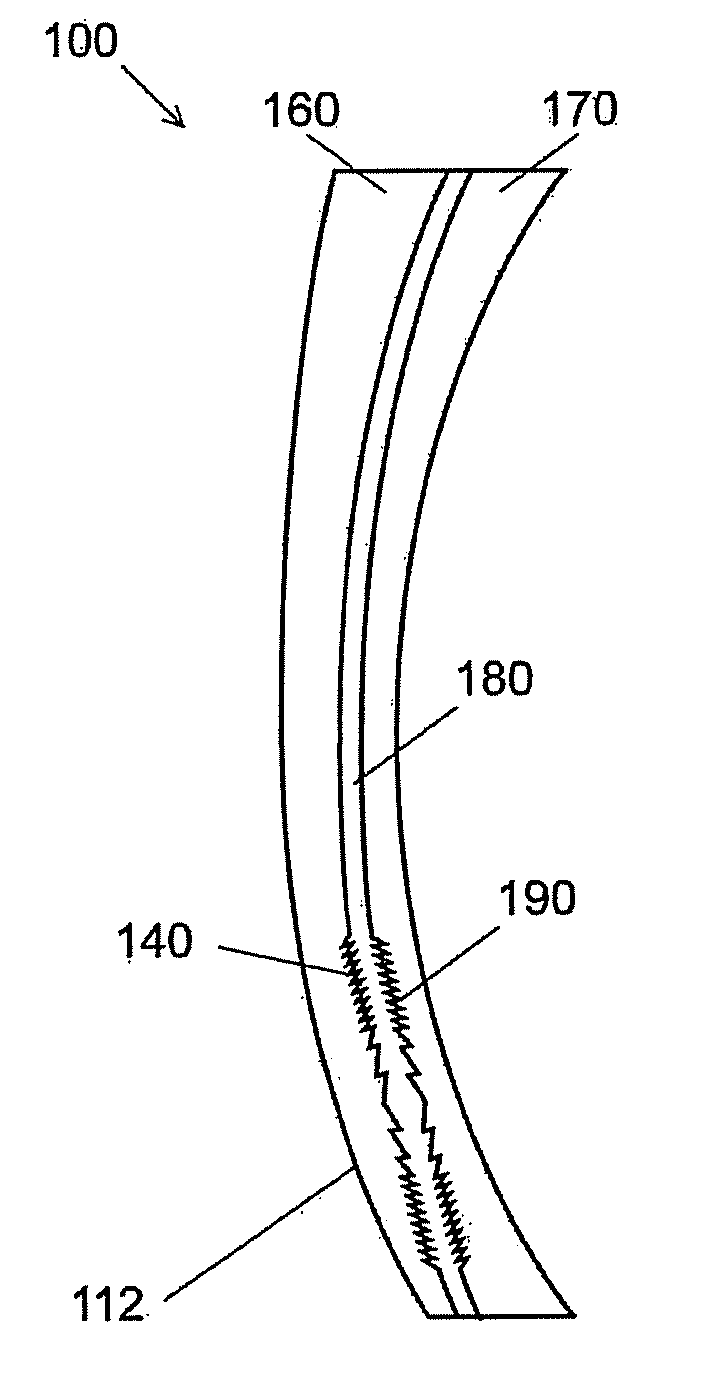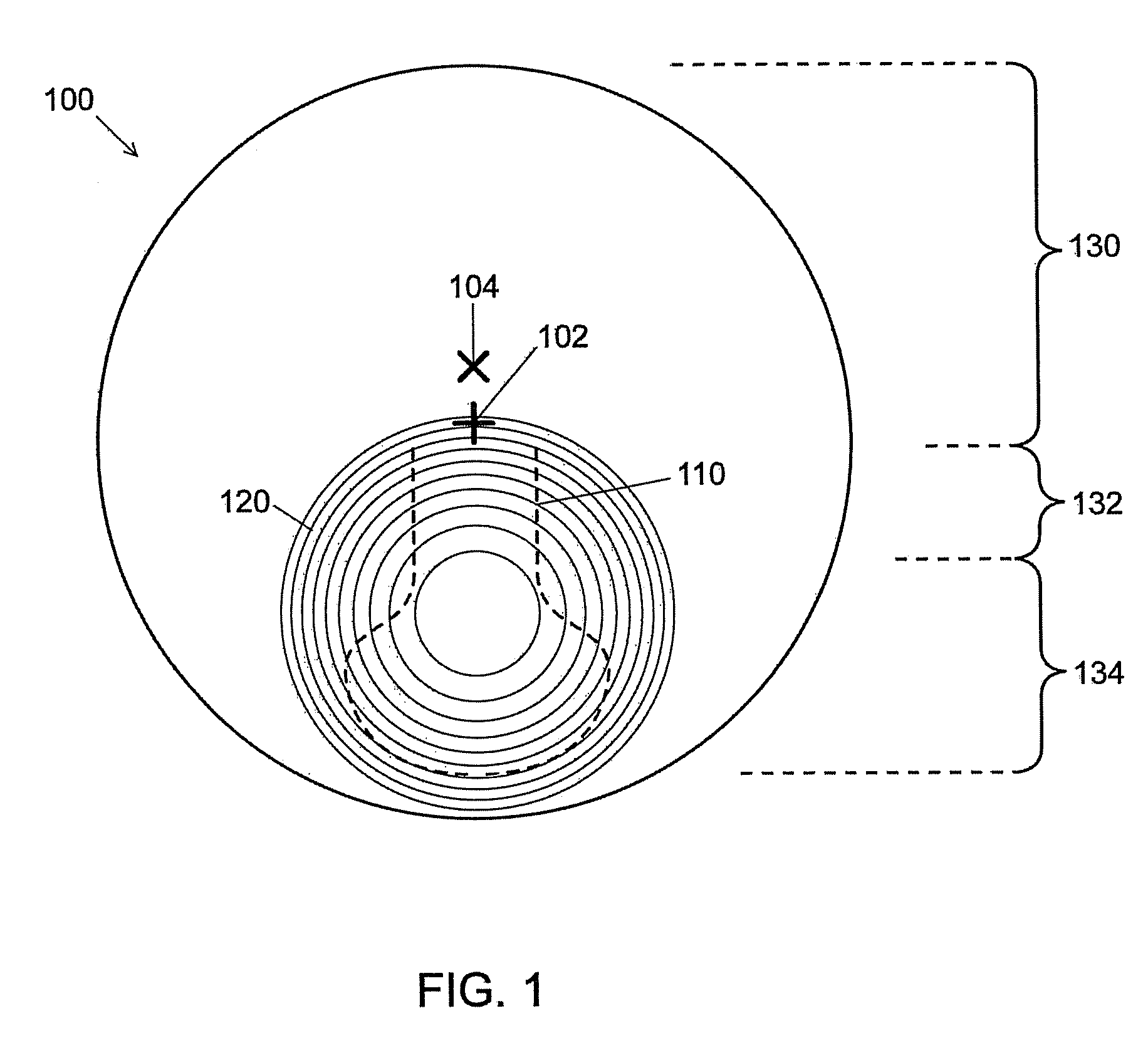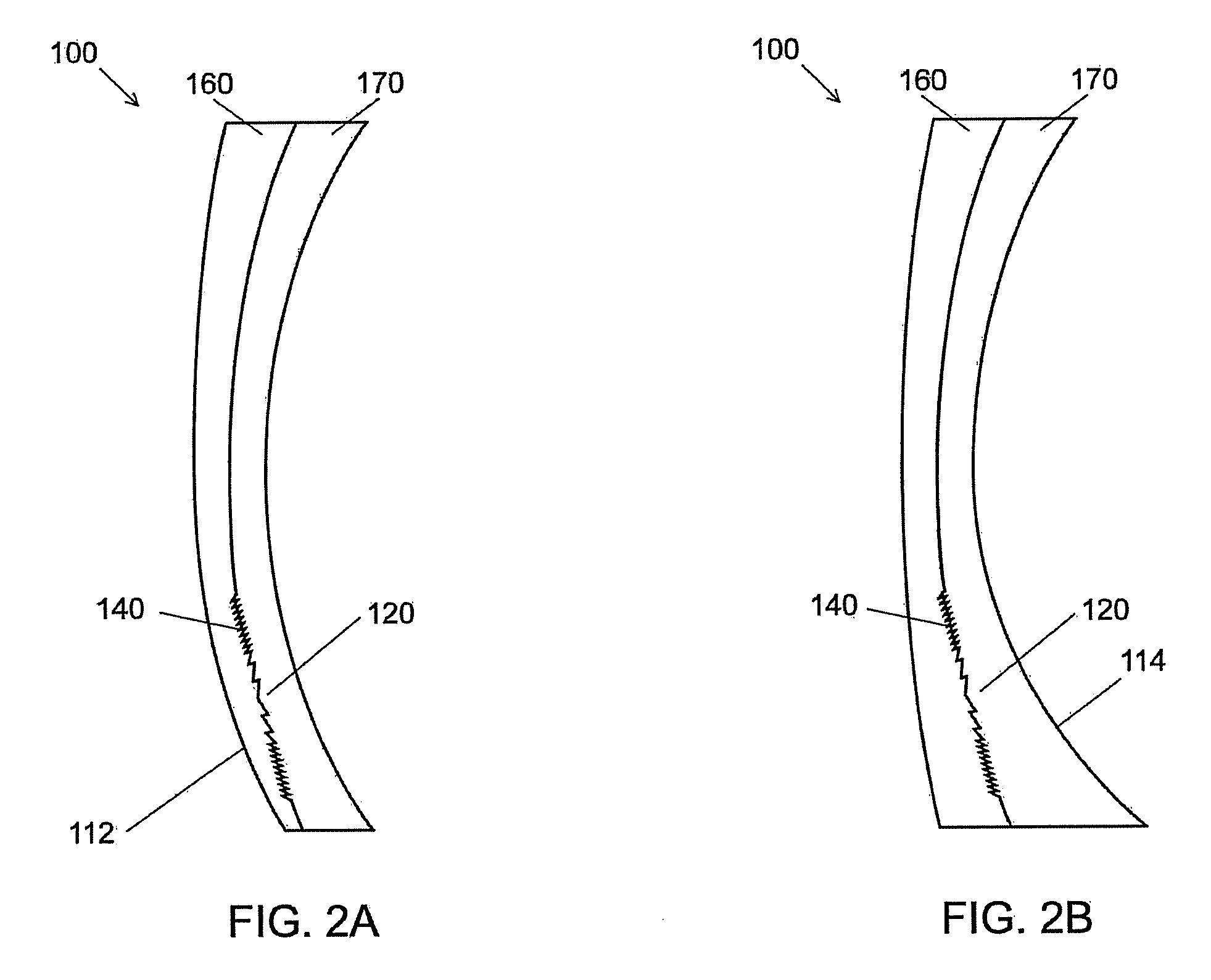Progressive addition lens operating in combination with a multi-order diffractive optic
a diffractive optic and progressive addition technology, applied in the field of multi-focal lenses, can solve the problems of serious vision compromise, present problems, and use of pals, and achieve the effect of reducing chromatic aberration and chromatic aberration
- Summary
- Abstract
- Description
- Claims
- Application Information
AI Technical Summary
Benefits of technology
Problems solved by technology
Method used
Image
Examples
Embodiment Construction
[0017]FIG. 1 shows a front view of a lens 100 having a progressive addition region 110 and a diffractive addition region 120.
[0018]The progressive addition region 110 is a low add power PAL designed to provide a wearer with an optical power less than the wearer's needed near distance optical power correction. For example, the add power of the PAL may be 50% of the required near distance optical power correction.
[0019]The diffractive addition region 120 is in optical communication with the progressive addition region. The diffractive addition region at least partially, and preferably largely, overlaps the progressive addition region. When used with the progressive addition region, the diffractive addition region provides the remaining optical power to provide the wearer's total needed near distance optical power correction. The diffractive addition region may be a multi-order diffractive (MOD) lens, e.g., as described by Faklis et al. (U.S. Pat. No. 5,589,982) and Morris et al. (U.S....
PUM
 Login to View More
Login to View More Abstract
Description
Claims
Application Information
 Login to View More
Login to View More - R&D
- Intellectual Property
- Life Sciences
- Materials
- Tech Scout
- Unparalleled Data Quality
- Higher Quality Content
- 60% Fewer Hallucinations
Browse by: Latest US Patents, China's latest patents, Technical Efficacy Thesaurus, Application Domain, Technology Topic, Popular Technical Reports.
© 2025 PatSnap. All rights reserved.Legal|Privacy policy|Modern Slavery Act Transparency Statement|Sitemap|About US| Contact US: help@patsnap.com



